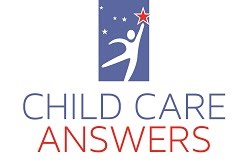
Count Down...
15 weeks until Child Care Answers 2nd Annual Cherish the Children Conference- Saturday, April 16, 2011- Don't Miss It!
The Body Safety Program
Terry Hall is a 37-year veteran of the Indianapolis Police Department. He developed the Body Safety program in the early 1980s when he was with the child abuse unit investigating sex crimes. Though he’d won the IPD “Officer of the Year” award for his arrests and convictions, he said he couldn’t hang the award on his wall. He was too devastated by the light sentences the courts gave to the molesters he caught. Children weren’t being believed in the courts and, with sexual abuse, rarely has hard physical evidence.
“I realized apprehension is not working,” Hall said. “You have to go for prevention.” He then began developing the program to prevent abuse and identify abusers. Over the years, he changed the title from “Good Touch, Bad Touch” to “Body Safety” to go with other school programs like “bus safety” and “fire safety.” And, he noted, not all good touch, like from parents and doctors, feels good. He wanted to clarify that in the minds of the students. To develop the program, he talked to teachers and prosecutors. He talked to abuse victims and pedophiles. He interviewed hundreds of convicted molesters over the years. One thing he asked was how they got their victims to stay quiet. “I expected them to tell me, ‘we’ll kill their parents; we’ll kill their dogs, we’ll do this, that,;” Hall said. “They don’t even threaten kids. They said, ‘We don’t tell kids not to tell about child molesting. You do.’” The revelation hit him like lightning. That’s why Hall believes it’s imperative for parents and adults to talk frankly to kids about their private areas and not be embarrassed or ashamed. “If you can’t teach kids to say the terms without embarrassment, how can you ever get them to admit their uncle touched them there?” he said.
“I know of no other programs in the United States that actually teach children: these are your private parts and give them the correct names of the body. We’ve got one name for the thumb, one name for the elbow and 5,000 names for the private parts of the body,” he said. “So if we can’t discuss them in open forum or in hygiene issues and medical issues, how could we ever tell the most embarrassing thing: being sexually assaulted?” That’s wheat sets Hall’s program apart. He doesn’t mince words. He presents the terms factually and tastefully in ways students will understand. He said some folks tell him their community couldn’t handle the candor. With his fully booked schedule years ahead, “Somebody’s community’s handling it,” he says.
His program is presented in half hour segments. It’s broken into grade divisions: generally kindergarten through second grade, then grades 3-4, 5-6, 7-8, 9-10 and 11-12. “So where I’ll be talking ‘good touches and bad touches’ under third grade, third grade and over we’re talking child molest,” he said. For junior high and high school students, he adds the issue of date rape. In high school, he also gives students signals to watch for in their younger siblings. “A young kid will tell their big brother in high school about child molest before they tell their mom and dad,” he said. Before he speaks to any students, he holds a session for teachers and parents the night before. He goes over the material he will be presenting to the students and makes sure support will be there for kids who disclose abuse. “What’s worse than a child being molested,” he said, “is a child telling someone and not being believed.”
In the 23 years he’s presented the program to schools, Hall estimates 1,500-2,000 students have come forward either for themselves or a friend. Never have fewer than three students disclosed abuse. At one school, there were 80. Wherever he speaks, social services, school counselors, plain clothes officers from the local area and sometimes state police departments are all there as a safety new for the kids. Hall doesn’t actively promote the program to schools or communities. He lets those who’ve already brought him to their communities do that. “If I’ve got to come in and convince somebody that something like this is needed,” he said, “I’m really working up hill from the start.” But he said child molestation is happening in every county, every community, whether folks there want to admit it or not. And every community must address it. “If you don’t have an active program, you’re saying one of two things: it doesn’t occur, or we don’t care,” he said. “And I don’t like either one of those.” He said the program not only exposes molesters already in communities, but can keep some of the hardcore predators away. “If he knows that every year, every school-aged child in the city is going to be asked – ‘has anyone ever given you a bad touch for no good reason:’ – is he going to apply his trade there? Why would he do that when he can go 15 miles east or 15 miles west and find a school system that doesn’t have any program?” he said.
It takes a partnership from everyone within the community – partnerships among parents and schools and prevention groups and businesses and law enforcement. Child molestation is like a cancer on the victims and on our communities. In any fight against cancer, awareness and prevention is the key. For child sexual abuse, that begins with open communication. For adults it means candidly talking to our kids, empowering them to protect their bodies, listening to them and supporting them.
Terry Hall can be contacted to do Body Safety Programs: Cell: 317.607.5306 or email: thall26@comcast.net
Taken from Sgt. Terry Hall’s Public Agency Training Council information: Lifting the Shadows by Richard Biever









No comments:
Post a Comment